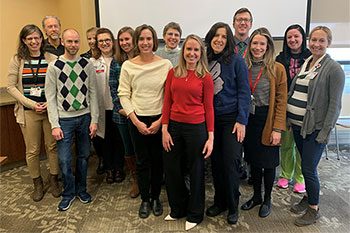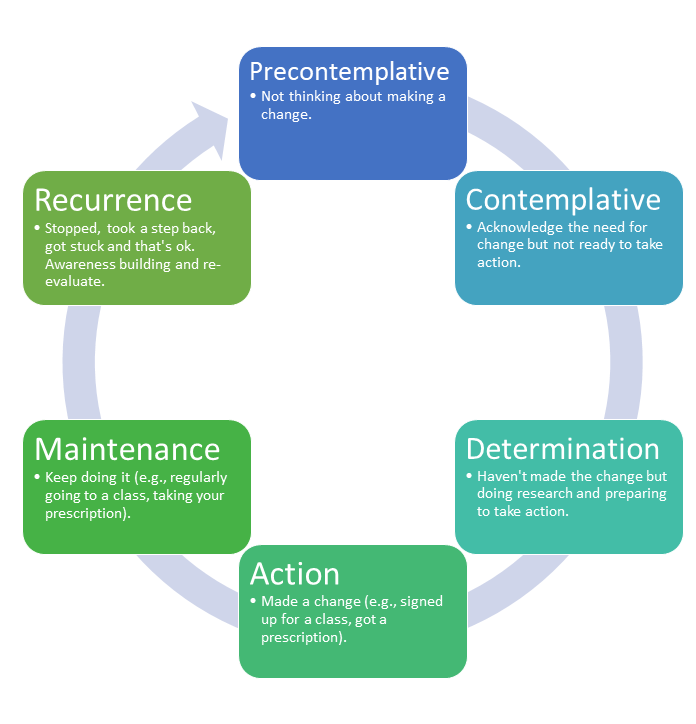Change is DARN hard, but it is possible if you have the Desire, Ability, Reason and Need! That was the theme of a recent workshop led by Julia Yates for faculty and staff at the UW Health Yahara Clinic. Yates, a licensed clinical social worker and psychotherapist at the UW Health Verona Clinic, completed the Co-Active Executive Coaching Fundamentals Training and went through her own executive coaching with an instructor from the UW-Madison Certified Professional Coaching Program. She offers a variety of workshops and one-on-one coaching sessions available to all faculty and staff at DFMCH.

Above, center: Julia Yates, LCSW, leads a workshop on change theory for faculty and staff at the UW Health Yahara Clinic.
At the Yahara Clinic workshop, Yates described the stages of change (Precontemplative, Contemplative, Determination, Action, Maintenance, and Recurrence) and encouraged the group to share personal or professional experiences. It was quickly apparent how knowing the stages of change can impact patient and personal care. If a patient needs to lose weight or quit smoking, knowing whether they’re in a precontemplative stage or a determination stage can drive a more productive conversation.
“If all you do at one of your patient visits for a particular concern is stage, that’s very powerful,” said Yates. She also encouraged participants to be open to dialogue with patients at any stage. Having empathy and knowing when to push further can help a patient with low self-efficacy.
Addiction specialist Alison Miller, DO, attended the workshop and added that a patient in the contemplative stage who is struggling with addiction may benefit from simple and encouraging words like “look at all you’ve been through, and you’re still here.”
The Stages of Change

In addition to change theory, Yates offers onsite workshops and one-on-one coaching on topics including conflict resolution, team building, having difficult conversations with employers or employees, and career guidance.
“Executive coaching is common in the corporate world,” said Yates, “but it’s an innovative strategy in health care, and I’m excited the DFMCH is one of the first departments to support and embrace this tool.”
For more information or to set up an initial consultation, contact Julia Yates, LCSW, at (608) 263-2938 or julia.yates@fammed.wisc.edu.
Published: February 2020
